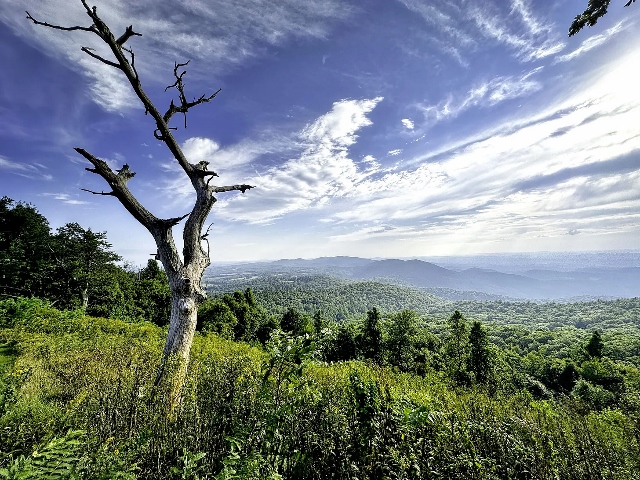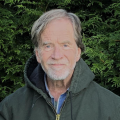And so at this tipping point in life, I return to visit early thoughts about WHERE we call home. My place was not where I was born. Mine, it turns out, was not to be forever in the Appalachians after all. I got that wrong.
On the other side of this move, of the Mississippi River, of saying goodbye to every thing and everyone we have known I will come back and recover my bearings among strangers in a strange land.
The retrospective from a place that is not yet “ours” will teach me things I did not know about finding home, about gaining a sense of belonging to an unknown landscape. I will relearn my personal ecology, and look forward to such education late in life.
The passage below is from Slow Road Home (2006). It turns out this declaration represents only a landmark along the way, and not the destination after all. Who could have known?

All who wander are not lost. ~ JRR Tolkien
When we are young, we live where we’re born. For some of us, the place of our birth is a perfect fit and we never leave it. For others like me, something is missing there, and we look for home in places we have never been but long to find.
After college, my wife and I stayed in my birth state of Alabama just long enough to save a little money, have a baby and decide where it was that we belonged in this world. Somehow we knew then that home would be north of Alabama, and we understood that our lives were meant to be lived among mountains.
When we found southwest Virginia in the mid-seventies, we felt we had come home. Or at least that we had found the larger neighborhood of round ridges and gentle valleys where some day, we would put down roots and stay.
We have lived in or longed to return to Virginia ever since. And now, finally, we’re here in Floyd County for good. But in all the world, I wonder: why here?
Something has drawn us here over the years, brought us back. A longing we cannot name has caused these hills to hold a nutrient we cannot live comfortably without. Maybe the force that has pulled us home could be called a persistent, inborn “sense of place”.
Others have used the term, defined it for themselves, found it—in the Far North, the Mid-West, the desert or shore. But what is it? Is it an essence in the air like the salmon sense as they migrate relentlessly back to the creeks where they were born? Is it a magnetic compatibility with geography, an imperceptible, persistent resonance in our bones that tells us that we are home? Or not?
“Where are you from?” a new acquaintance will ask.
It has been far easier to tell people where I live or have lived than to tell them where I am from. Unlike our grandparents who may have died in the same county where they were born, like many of my peers, I have followed careers wherever they might carry me, and “home” has pretty much been synonymous with our current mailing address.
There has never been a family home place for me to go back to. How would I ever know when and where to settle down, to make roots for my children’s children, to bond with a particular place for good?
It’s odd how and when they happen—those flashes of insight that seem to be openings in the heavens, when light pours down into our own private darkness. When I had my revelation of belonging, it was though the words of Sharyn McCrumb, speaking at the Presbyterian Church in the tiny community of Floyd. I wondered if others felt the tremors I felt that night.
She described the serpentine rock under the Appalachian chain, the core of stone that binds the great backbone together. I perked up my ears: it begins just south of my home town in Alabama, she told us. From there, it stretches north underneath Floyd and all the way to Ireland.
The image of this long unbroken line of history and stone conjured in my mind a map, and on it, I could see them in a perfect line: all of the towns I had chosen for homes in our wanderings.
I guess it just never occurred to me before that moment: in all of my seeming rootlessness, I have never lived far from the southern mountains. In my epiphany that night, I saw that I never could.
The mountains held a gravity I could not escape; I had always been Appalachian. The mountains were my source, and I was a native son. And I knew then that I would come to feel more akin to others who claim this calling to place than to those who by accident of birth were born where I was born.
But what kind of allegiance does a native son owe these ridges and valleys? How much of who I am is because of where I’ve been called to live? Would I have become the same person had I been born on Midwestern prairie or Arctic tundra? How am I—how are we—shaped by the form and pulsing life and the history of these hills and this forest?
Whether we know or deny it, place molds into each of us its latitude and elevation, its geometry and chemistry. But it is possible to live so fast that we become oblivious to our relationship to the where of our lives. An intimate relationship with the land requires a daily attention to the particulars through every season.
I ask your forbearance in advance. Posts may be brief and intermittent for a month or two. I have some writing projects in mind when things settle down. I will belong to a writers’ group in Columbia who may help me find my new voice and purpose in a land without mountains. There’s no turning back now.
 – Fred First is an author, naturalist, photographer watching Nature under siege since the first Earth Day. Cautiously hopeful. Writing to think it through. Thanks for joining me. Subscribe to My Substack HERE
– Fred First is an author, naturalist, photographer watching Nature under siege since the first Earth Day. Cautiously hopeful. Writing to think it through. Thanks for joining me. Subscribe to My Substack HERE
